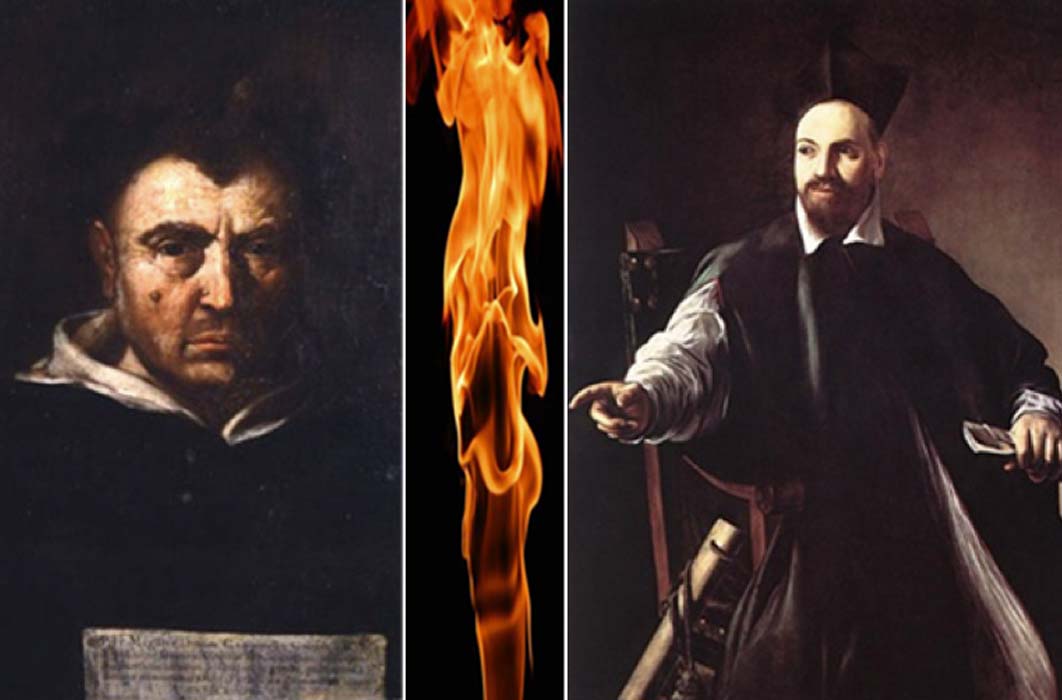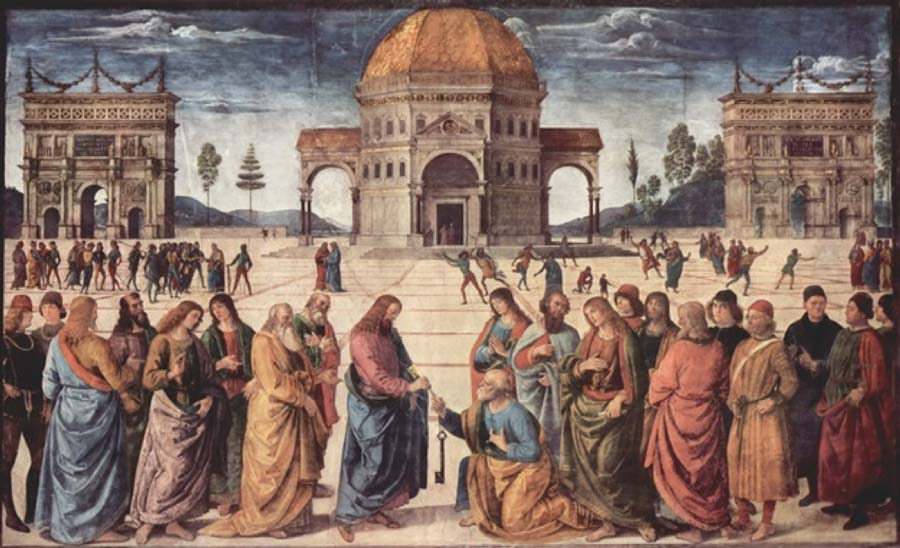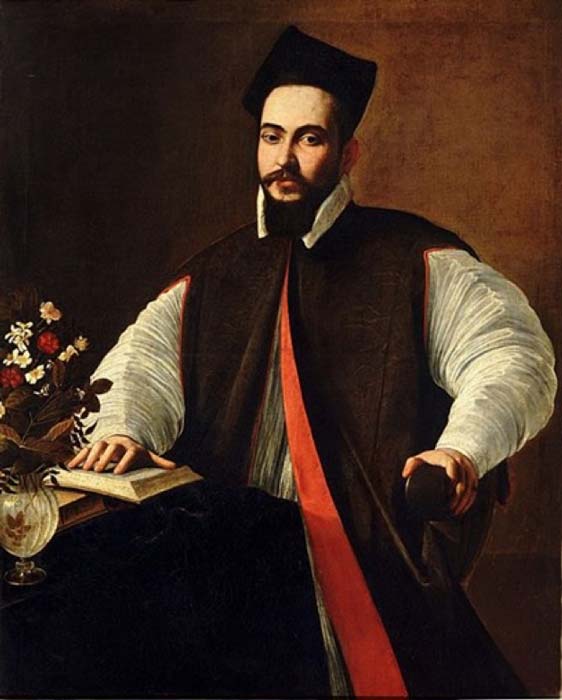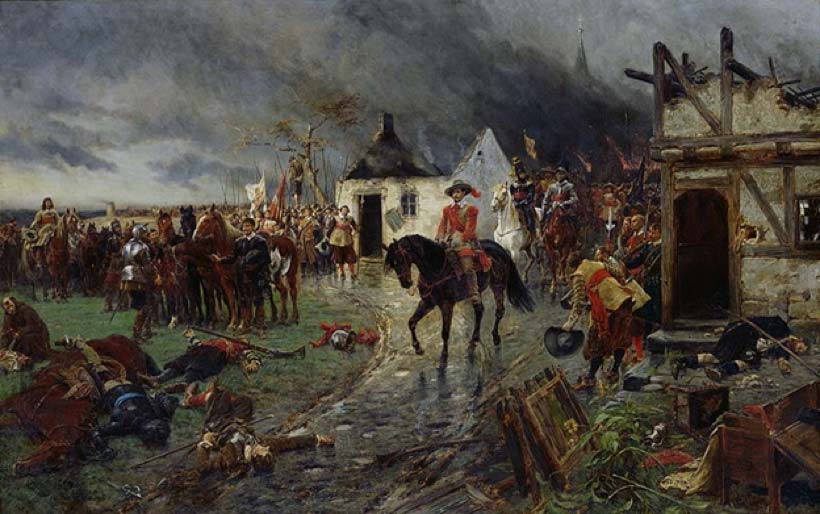
The Folly of Pope Urban VIII and the Banning of Astrological Prophesies of Papal Fates
A 17th century Pope so feared the astrological prediction that he would exchange his life as pontiff in the Urbs Aeterna or eternal city of Rome for the everlasting life, on a day coinciding with a solar eclipse, that he momentarily lost his spiritual way by consorting with a branded heretic and horoscope forecaster, until Fate intervened to draw the veil from their chamber of magic.

Christ Giving the Keys to St. Peter by Pietro Perugino (1480) (Public Domain)
The Conclave Assembles
Pope Gregory XV, born Alessandro Ludovisi, did not do the cardinals any favor when he passed away very inconveniently on Saturday July 8, 1632, a day when Rome lay paralyzed due to the sweltering heat of mid-summer. Eleven days after his demise in the shadow of the obelisk of Heliopolis, the cardinals congregated at St. Peter's Basilica for a Conclave. The prospect of anticipating a well-deserved holiday in some cool country villa - which was always featured in the real estate portfolio of any cardinal worth his salt and merit - was short-lived, since out of the more than 50 cardinals as many as 15 were ‘papable’.
So the cardinals locked the doors and bunked down, respecting the dictates of the bull Decet Romanorum Pontificem, (a papal bull) knowing full well they could only escape the sultry heat when at least two thirds of them expressed a vote in favor of one of their brethren, worthy of placing his ‘holy loins’ on the Chair of the Prince of the Apostles. Behind the scenes the camarillas were eagerly campaigning for votes among the dehydrated cardinals. To make matters worse, a mysterious fever - due to some virus that had nothing better to do than lurk in the bodies of the illustrious prelates – had managed to infiltrate the locked-down Conclave. Perhaps this was the reason that by Sunday August 6, 1623, the white smoke emanated from the special chimney atop the Sistine Chapel, to announce they had unanimously decided on the Florentine candidate Maffeo Vincenzo Barberini, as their new Pope.

Maffeo Vincenzo Barberini, as a young man by Caravaggio (1571–1610) (Public Domain)
“Deo gratias!” probably sighed the dehydrated prelates, but, evidently, Providence had been a little distracted because the 325th successor of St. Peter, who had just been elected, fell victim to the nasty virus and became seriously ill. He survived, but 40 other conclavists, followed the recently departed Pope Gregory XV through the Pearly Gates. Thus, bookended between a camarilla and a mischievous pathogen, commenced the papal adventure of Maffeo Vincenzo Barberini, better known as Pope Urban VIII.

A Scene of the Thirty Years War by Albert Von Wallenstein (1884) Leeds Art Gallery (Public Domain)
Disaster Predicted for the Pope
The new Pope could not have picked a more turbulent time to enter the arena. The Thirty Years War (1618 – 1648) had initially commenced as a power struggle between various Protestant and Catholic states and fragmented the Holy Roman Empire, but then it spiraled out of control to a more general conflict involving most of the European great powers. Violence, famine and plague ravaged the population of Europe. Pope Urban endeavored to broker peace and saw it as his duty to act as an arbitrator between the various warring states, but it was a mistake to deviate from the purely religious sphere. He was not very popular among certain factions and things became very personal when he was informed of a malicious astrological prophesy that would see him joining his predecessor in the afterlife, coinciding with an imminent solar eclipse. Solar eclipses were calendarized for December 1628, but also the lunar one for January or the one of June two years later.




